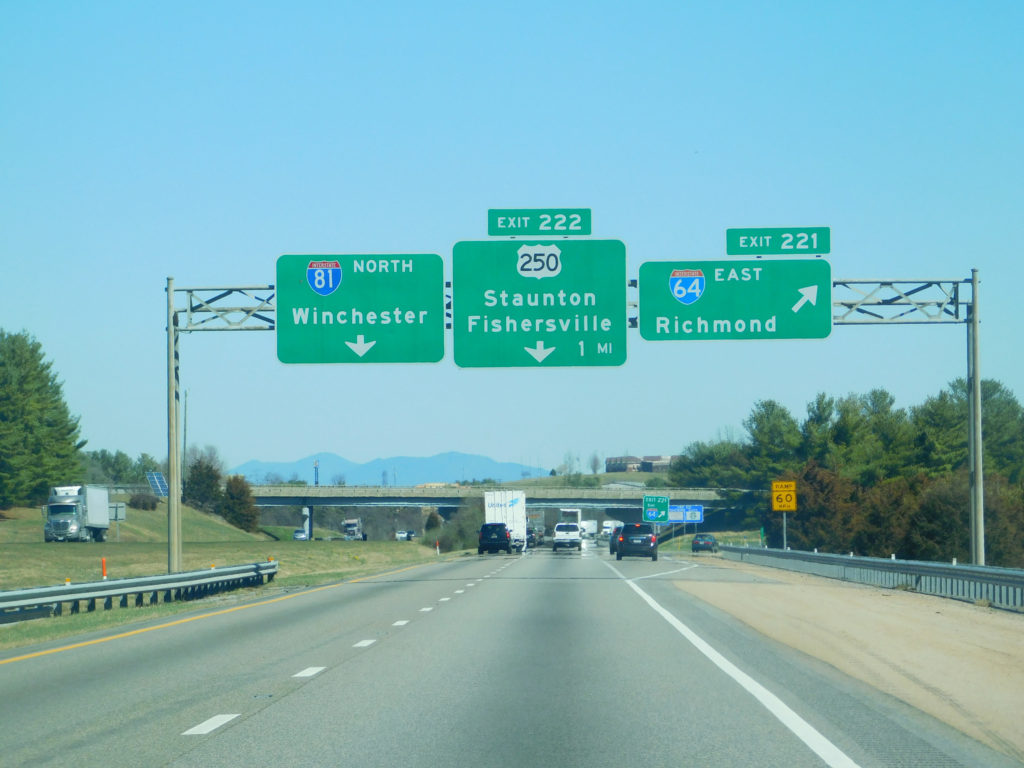Some of the long-awaited Interstate 81 corridor improvements have been released, which culminate in a $2 billion proposal that Virginia Deputy Secretary of Transportation Nick Donohue told Shenandoah Valley legislators could be funded over a 30-year period by tolls, increases in retail sales and use taxes, or regional fuel taxes. Later this month, the recommended improvements and funding options from the Virginia Department of Transportation (VDOT) will be presented to the Commonwealth Transportation Board (CTB) to be finalized and sent to the General Assembly in the 2019 session.
The 72 proposed projects throughout the 325-mile I-81 Virginia corridor include widening the interstate to three lanes, shoulder widening, extending acceleration and deceleration lanes at various locations, among other improvements aimed at helping truck drivers.
In VDOT’s Staunton corridor, one of the areas most heavily burdened by traffic problems and accidents, the $900 million worth of improvements include:
Northbound
- Widening the highway itself to three lanes between exits 222 and 225.
- Extending an acceleration lane at Mount Sidney rest area.
- Adding a truck climbing lane between mile markers 234 and 237.
Southbound
- Adding a truck climbing lane between mile markers 236 and 235.
- Extending acceleration and deceleration lanes at the Mount Sidney rest area.
- Extending the acceleration lane where Exit 225 enters the highway.
- Widening the highway itself to three lanes between exist 225-217.
According to a report from the News Leader, the estimate is that the improvements to the congested area would save six million hours in delays and prevent approximately 450 accidents per year.
Although the General Assembly will ultimately decide the funding options for the massive project, many are touting a new regional fuel tax to pay for upgrades.
The Daily Progress reports that tractor-trailers could be tolled “at a rate of less than 17 cents” at six different locations along the corridor, Donohue told a crowd during a recent meeting in Weyers Cave. As well, commuters would be able to apply for an annual pass through the Department of Motor Vehicles (DMV) similar to the E-Z Pass that is used to travel through Virginia’s other tolls. The deputy transportation secretary said the annual revenue from tolling is estimated around $135 million.
A regional fuels tax increase of 2.1 percent could generate $60 million a year, and a 0.7 percent increase in retail sales and use taxes would generate $105 million a year.
Regardless of what funding options have been proposed, Delegate Dickie Bell (R-Staunton) said that increased trucking traffic on I-81 has become more dangerous over the years as the roadway becomes much more congested. He said that the corridor improvements are “not just a transportation issue, but a public safety issue.”
State Senator Mark Obenshain (R-Harrisonburg), the sponsor of the I-81 study in the upper chamber of the state legislature, explained that lawmakers are eager to work on the legislation in the upcoming session.
“It is critical to get some asphalt down on 81,” he said.
One funding hurdle that will need to be addressed is the unpopularity of the tolls by truckers, which make up near 40 percent of commuters on the corridor. Hobey Bauhan, president of the Virginia Poultry Federation, said it is important to consider other options that tolling travelers.
“Our organization has opposed tolls,” he said.
Furthermore, many advocates for trucking associations claim that tolling creates diversions, which cause truckers to find other routes to their destinations. However, considering I-81 as been the traditional route from the northeastern part of the U.S. to the West, there is unlikely to be a way around the increased travelling fees.
VDOT’s I-81 project leader Ben Mannell said if all the recommended 72 improvement projects along the corridor are funded, it would have a $3.5 billion economic impact on the state. Moreover, he explained that the benefit to the trucking industry would be $1.4 billion greater than the cost of toll payments, and there would be multi-millions in positive impacts on Virginia manufacturing, agriculture, and logistics.

